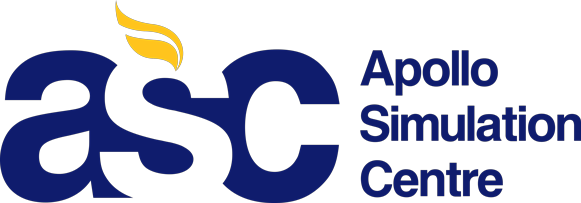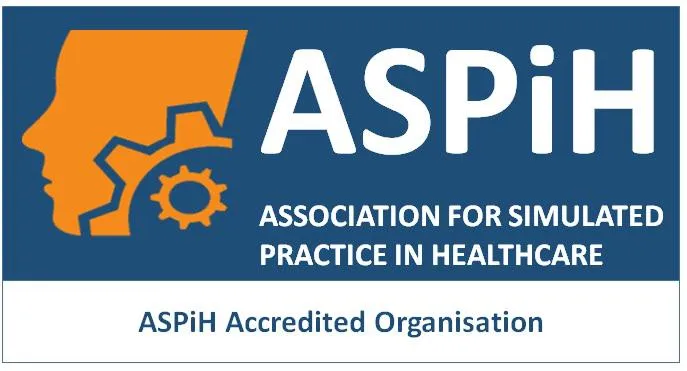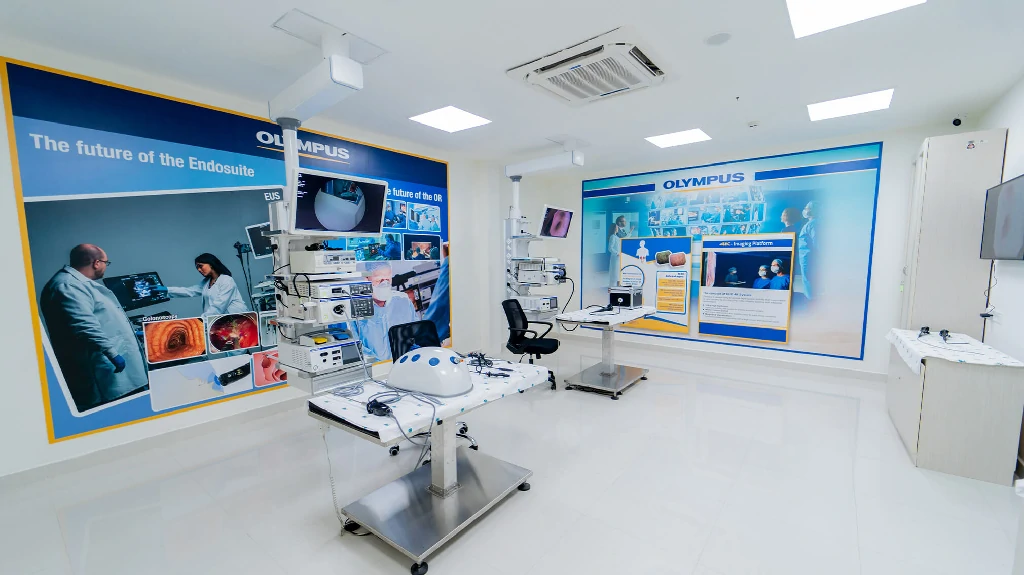
Learning Outcomes
Understand Instrumentation and Setup:
- For minimal access surgery
- Enhance proficiency in scope and instrument handling, dissection, knotting, clipping and electrosurgery.
- Compare the advantages and disadvantages of various hernia repair techniques, including TEP and TAPP
- Properly and safely use laparoscopic instruments, ensuring regular maintenance.
- Apply step-by-step procedural knowledge in simulated environments for eTEP, TAPP & Ventral hernia repair.
- Execute intracorporeal suturing, stapling, mesh handling and placement with precision.
Course Description
This comprehensive three-day course is designed to equip participants with foundational knowledge, practical skills, and advanced techniques in laparoscopic hernia surgery. Combine interactive lectures, hands-on simulation exercises, and case-based discussions, the program fosters a robust understanding of laparoscopic instruments, procedural steps, and trouble shooting strategies in minimal access surgery for hernia. Participants will gain a thorough understanding of hernia repair techniques, mesh handling and intracorporeal suturing, culminating in a practical assessment to validate their proficiency.
New Batch Starts on
Contact Us
Course Duration:
3 Days
 Webinars, panels and small group discussions
Webinars, panels and small group discussions Equipment, instrument and procedure demonstrations
Equipment, instrument and procedure demonstrations Dry laboratory training on all technical aspect of MAS
Dry laboratory training on all technical aspect of MAS Live demonstrations/master videos of various surgical procedures
Live demonstrations/master videos of various surgical procedures Wet lab for hands-on experience during selected courses
Wet lab for hands-on experience during selected courses
Curriculum
Knowledge
Delivered through online lectures
Skills
Delivered through 3-day contact course at Apollo Simulation Centre
Assessment
For both knowledge and skills
Observership
Optional
Mentorship
Optional
Online Modules
All didactic lectures will be available as online modules for candidates 2 weeks prior to the contact course to prepare for the course well in advance. All the required theory knowledge will be learnt through web platform. There will be a Q&A section available after each lecture to interact with the faculty for any additional doubts to be clarified. Completing online modules is mandatory for certification
| S. No | Topic |
|---|---|
| 1 | Introduction to laparoscopy |
| 2 | Laparoscopic instruments |
| 3 | Basic principles |
| 4 | Energy sources |
| 5 | Access techniques |
| 6 | Tissue approximation |
| 7 | Equipment maintenance |
| 8 | Anaesthetic considerations |
| 9 | Troubleshooting |
| 10 | Robotic surgery |
| 11 | EndoHernia anatomy and radiology |
| 12 | Prosthesis and fixators |
| 13 | Optimising patients for surgery |
| 14 | Approach to groin hernias |
| 15 | Approach to abdominal wall hernia |
| 16 | Abdominal wall reconstruction |
| 17 | Emergency hernia management |
| 18 | Difficult and revisional hernias |
| 19 | Recent advances and future |
| 20 | Setting up a lap unit |
Contact Course
The three-day contact course is aimed at providing practical knowledge about everything that one needs to know about minimal access hernia surgery. This is achieved by way of 50% of time spent on panel discussions, live surgical demonstrations and 50% time on hands on training including dry and simulation laboratory.
Day 1: ASC
| Time | Event | Location | Comment |
|---|---|---|---|
| 08:45 | Registration and pairing | Lounge | Welcoming of participants |
| 09:00 | D1: Instruments/Prosthesis | EndoSuite | Image chain, lap trolley |
| 09:45 | D2: Basic principles | EndoSuite | Ergonomics of set-up and access |
| 10:30 | D3: Access techniques | EndoSuite | Creation of working space |
| 11:00 | Coffee/Tea – Lounge | ||
| 11:15 | H1: Access and dexterity | Skills Lab | Dissection and scissors exercise |
| 12:00 | H2: Knotting and suturing | Skills Lab | Technique and steps |
| 12:30 | Lunch – Lounge | ||
| 13:30 | P1: Which hernia repair? | Skills Lab | Advantages and disadvantages |
| 14:00 | P2: Hernia master videos | Skills Lab | Tips and tricks |
| 15:00 | Coffee/Tea – Lounge | ||
| 15:15 | H3: Extracorporeal knotting | Skills Lab | Endoloop, torn sac looping |
| 16:15 | H4: Intracorporeal suturing | Skills Lab | Needle handling, suturing |
| 16:45 | Summary | Lounge | Views, recap and group photo |
| 17:00 | End of the Course | ||
Day 2: ASC
| Time | Event | Location | Comment |
|---|---|---|---|
| 08:45 | Overview | Lounge | Pairing |
| 09:00 | H5: Mesh handling | Skills lab | Technique and steps |
| 09:45 | H6: Mesh placement | Skills lab | Technique and steps |
| 11:00 | Coffee/Tea | ||
| 11:15 | H7: Mesh fixation | Skills lab | Technique, steps |
| 11:45 | H8: Mesh suturing | Skills lab | Technique, steps |
| 12:30 | Lunch | ||
| 13:30 | P3: Controversies and problems | Board room | How to overcome difficulties |
| 14:00 | P4: Mishap videos | Board room | Complications, troubleshooting |
| 15:00 | Coffee/Tea | ||
| 15:15 | E1: OSCE | Skills Lab | Practical exam |
| 16:30 | E2: Results and certification | Skills Lab | Analysis of performance |
| 16:45 | Summary and feedback | Lounge | Views and recap |
Day 3: ASC/EISE
| Time | Event | Location | Comment |
|---|---|---|---|
| 08:45 | Overview | OT Lounge | Pairing |
| 09:00 | S1: TAP/TEP inguinal hernia | OT | Technique, steps |
| 10:30 | Coffee/Tea | ||
| 11:00 | S2: e-TEP ventral hernia | OT | Step by step approach |
| 12:30 | Lunch | ||
| 13:30 | S3: AWR (Lap/Robotic) | OT | Step by step approach |
| 15:00 | Coffee/Tea | ||
| 16:30 | Summary | OT Lounge | Views and feedbacks |
| 17:00 | End of the Course | ||
Observership program
Observership includes a short 3-day period of attachment with the respective speciality unit to witness live surgeries and ward rounds of various surgeries as per availability in the respective speciality.
Mentorship program
Mentorship involves a much longer 3-week period of clinical attachment to the speciality unit, with the possibility of surgeon shadowing through managing outpatient/inpatient services and assisting procedures/surgeries.
Objective Structured Clinical Examination (OSCE)
Skills and technique assessment will be done through OSCE at the end of the contact course. Each student will be performing various tasks like dissection, suturing, stapling, mesh placement, tacker application, etc. which we objectively assessed through scoring key. The number of stations will vary between 8 and 12. At the end of the examination, a cumulative score of 70% will be required to clear the assessment.
Patron
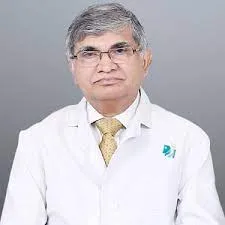
Dr. Prasanna Kumar Reddy
Senior Consultant,
Department of Surgical Gastroenterology,
Apollo Hospitals
Program Director
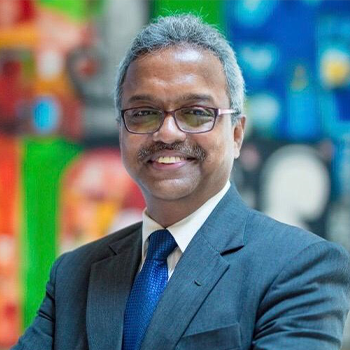
Dr. Muralidharan M
Consultant Surgeon,
Department of General Surgery,
Apollo Cradle Hospitals, Chennai
Course Convenor
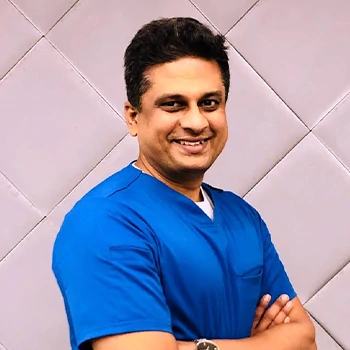
Dr. Raj Palaniappan
Director and Lead Surgeon,
Institute of Bariatrics,
Apollo Hospitals, Chennai
Course Co-ordinator
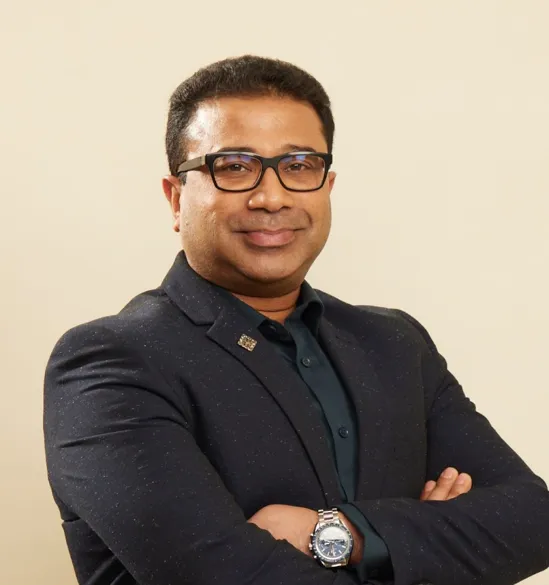
Dr. Premkumar Balachandran
Senior Consultant and Coordinator,
Institute of Hernia and Anterior Wall Reconstruction,
Apollo Hospitals, Chennai
Faculty
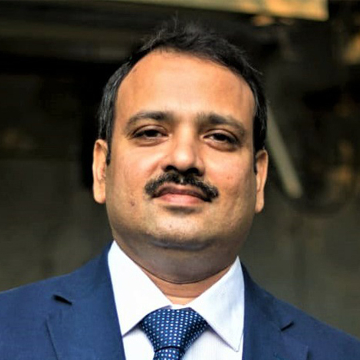
Dr. Sudeepta Kumar Swain
Senior Consultant,
Department of surgical Gastroenterology,
Apollo Hospitals, Chennai
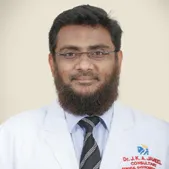
Dr. J.K.A. Jameel
Senior Consultant,
Department of Surgical Gastroenterology
Apollo Hospitals, Chennai
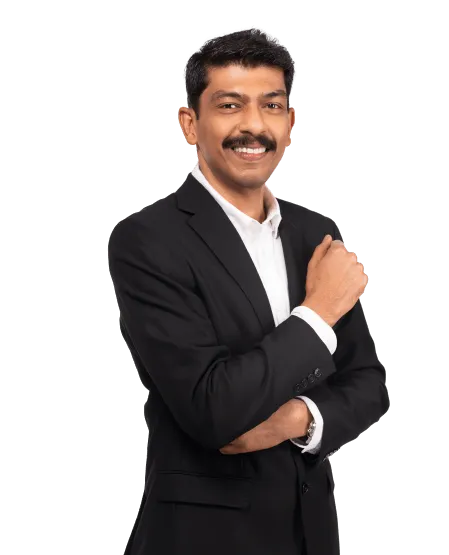
Dr. Ravindran Kumeran
Senior Consultant,
Department of Surgical Gastro Enterology,
Apollo Hospitals, Chennai
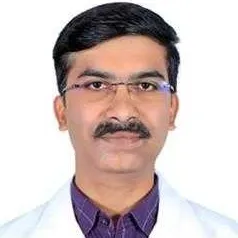
Dr. Santosh Anand KS
Consultant,
Department of Surgical Gastro Enterology,
Apollo Hospitals, Chennai
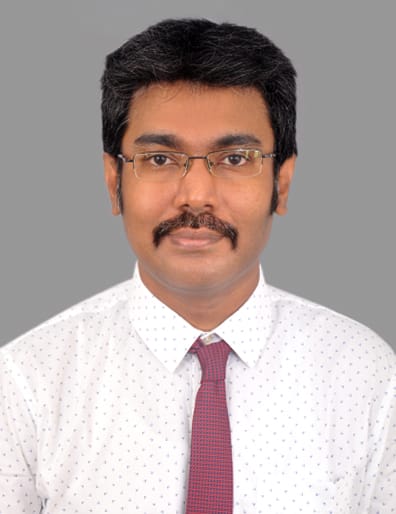
Dr. Senthil Kumar K
Professor,
Department of General Surgery,
Chettinad Hospital and Research Institute, Kelambakkam
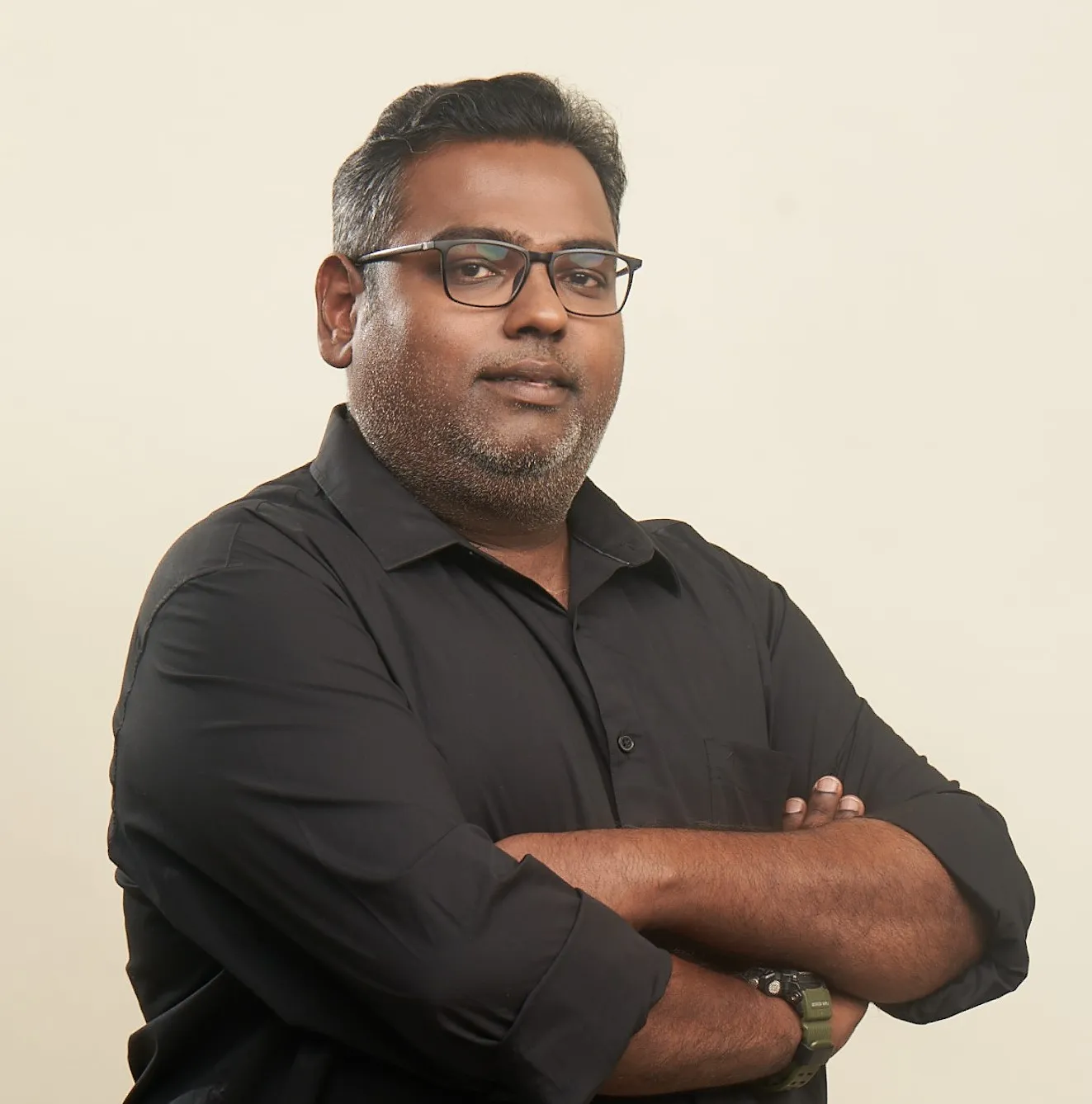
Dr. Charles Mano Sylus
Consultant Surgeon,
Department of General Surgery,
Apollo Speciality Hospitals, Vanagaram, Chennai
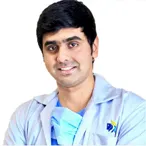
Dr. Nikhilesh Krishna
Consultant Surgeon,
Department of Minimal Access Surgery,
Apollo Hospitals, Chennai
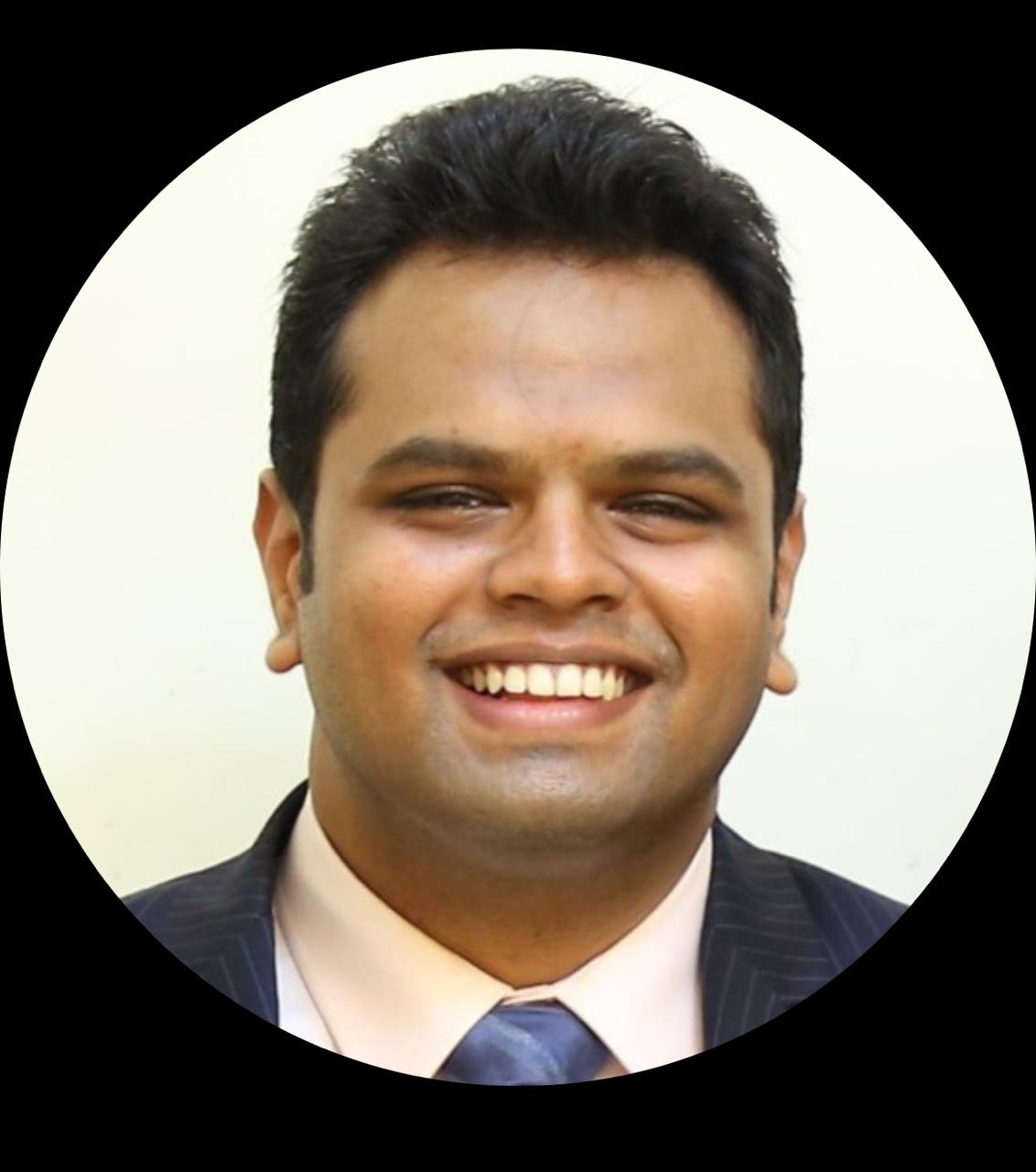
Dr. Subbaiah TS
Associate Consultant,
Department of General Surgery,
Apollo Hospitals, Chennai
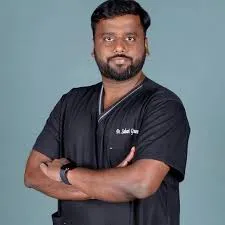
Dr. Sabari Giriesan
Consultant
Department of General Surgery,
Madras Medical College.
Gallery
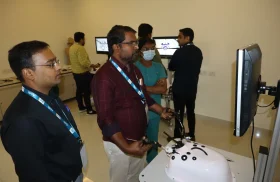
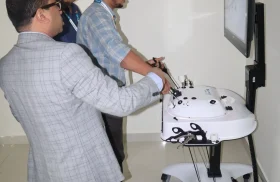
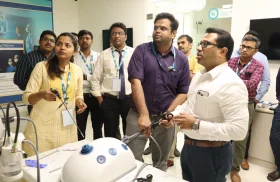
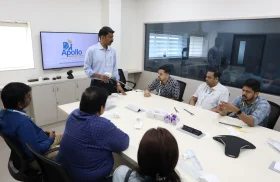
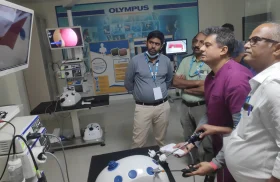
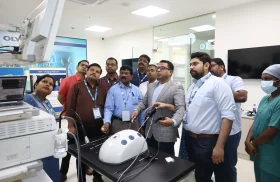
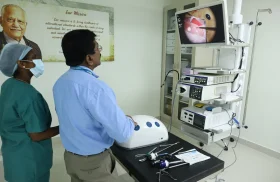
Why ASC
- Unparalleled Technological Infrastructure
- Expert Faculty with Real World Experience
- Innovative Learning Methodologies
- Comprehensive Curriculum
- Learner faculty ratio and learner manikin ratio is well maintained

